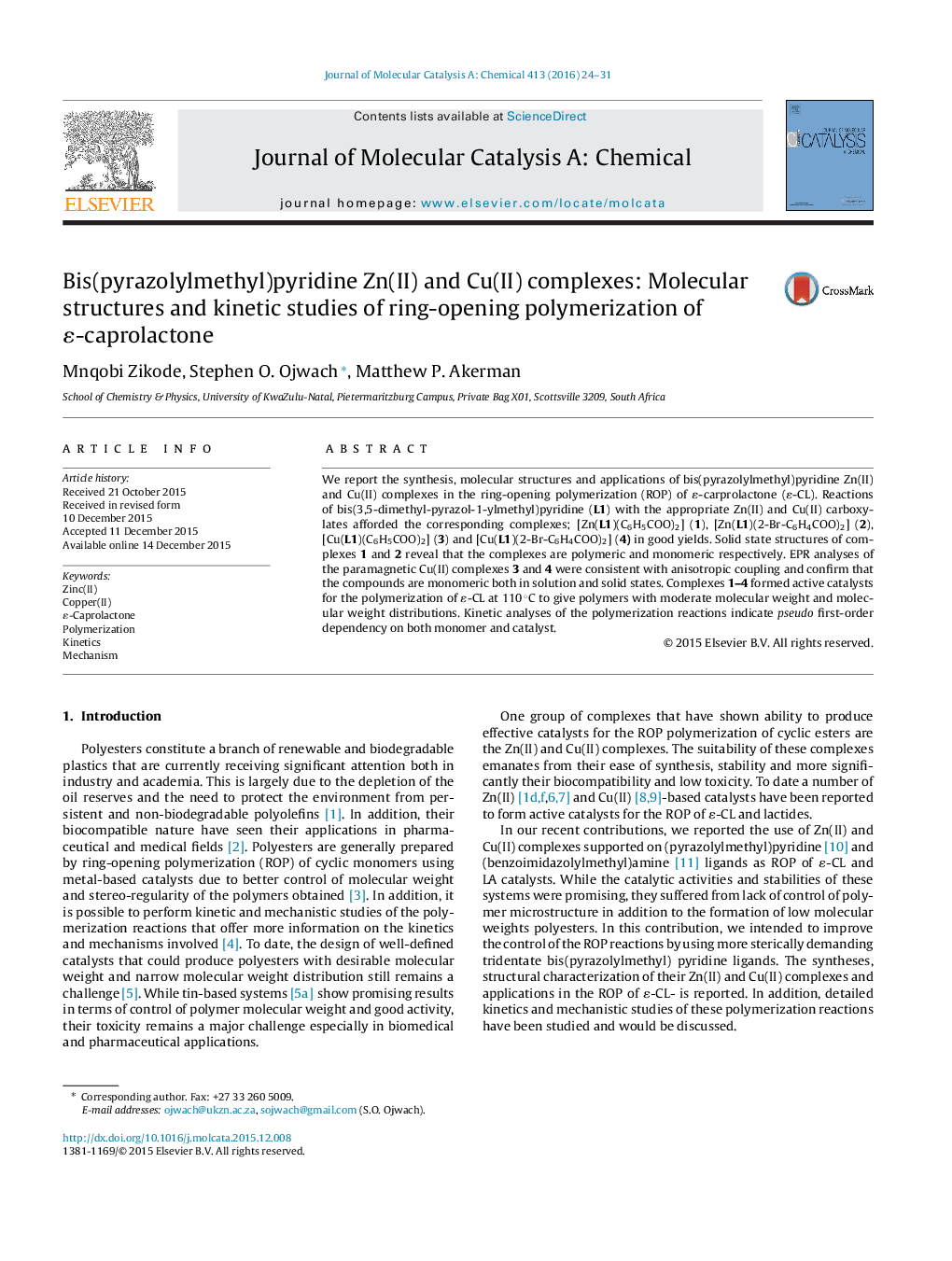| Article ID | Journal | Published Year | Pages | File Type |
|---|---|---|---|---|
| 64747 | Journal of Molecular Catalysis A: Chemical | 2016 | 8 Pages |
•Zn(II) and Cu(II) complexes synthesized and structurally characterized.•All the complexes form active catalyst for the ROP of ε-CL.•ROP reactions follow first-order kinetics.•The polymers end groups contain OH from hydrolysis.
We report the synthesis, molecular structures and applications of bis(pyrazolylmethyl)pyridine Zn(II) and Cu(II) complexes in the ring-opening polymerization (ROP) of ε-carprolactone (ε-CL). Reactions of bis(3,5-dimethyl-pyrazol-1-ylmethyl)pyridine (L1) with the appropriate Zn(II) and Cu(II) carboxylates afforded the corresponding complexes; [Zn(L1)(C6H5COO)2] (1), [Zn(L1)(2-Br-C6H4COO)2] (2), [Cu(L1)(C6H5COO)2] (3) and [Cu(L1)(2-Br-C6H4COO)2] (4) in good yields. Solid state structures of complexes 1 and 2 reveal that the complexes are polymeric and monomeric respectively. EPR analyses of the paramagnetic Cu(II) complexes 3 and 4 were consistent with anisotropic coupling and confirm that the compounds are monomeric both in solution and solid states. Complexes 1–4 formed active catalysts for the polymerization of ε-CL at 110 °C to give polymers with moderate molecular weight and molecular weight distributions. Kinetic analyses of the polymerization reactions indicate pseudo first-order dependency on both monomer and catalyst.
Graphical abstractFigure optionsDownload full-size imageDownload high-quality image (74 K)Download as PowerPoint slide
